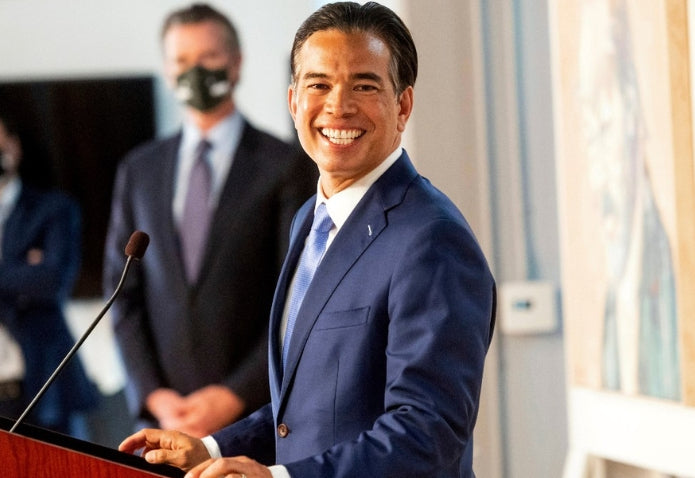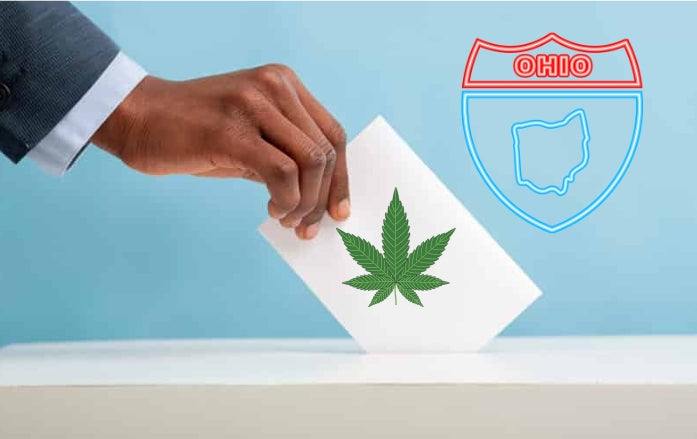The top federal health agency sent its recommendation to the DEA this week, which maintains the final authority in rescheduling drugs under federal law.

The federal prohibition of cannabis may end sooner than many industry experts and stakeholders thought. At least that's the buzz emerging from Washington after a bombshell announcement concerning the legal status of marijuana by the nation's top health officials.
According to multiple media outlets, the U.S. Department of Health and Human Services (HHS) is officially recommending that cannabis be moved from Schedule I to Schedule III under the Controlled Substances Act (CSA). It is a historic move by the agency because it signifies that the department no longer views marijuana as a narcotic with high abuse potential and no medical value.
The announcement comes following an extensive scientific review of cannabis requested by President Biden last year as part of his decision to grant pardons to all individuals currently serving federal prison sentences for simple marijuana possession convictions. In that request, Biden directed the Secretary of Health and Human Services and the Attorney General to "expeditiously" review marijuana scheduling under federal law.
As a result of its analysis, HHS is now conveying to the Drug Enforcement Administration (DEA) that it believes cannabis should now be a Schedule III narcotic under the CSA. While the recommendation is not binding, with the DEA having the final word, the overwhelming scientific data combined with growing political momentum for marijuana reform could significantly impact the DEA's final decision.
In a statement released on Wednesday, an HHS spokesperson said, "Following the data and science, HHS has expeditiously responded to President Biden's directive to HHS Secretary Becerra and provided its scheduling recommendation for marijuana to the DEA on August 29, 2023. This administrative process was completed in less than 11 months, reflecting this department's collaboration and leadership to ensure that a comprehensive scientific evaluation be completed and shared expeditiously."
"Following the data and science, HHS has expeditiously responded to President Biden's directive to HHS Secretary Becerra and provided its scheduling recommendation for marijuana to the DEA on August 29, 2023. This administrative process was completed in less than 11 months, reflecting this department's collaboration and leadership to ensure that a comprehensive scientific evaluation be completed and shared expeditiously."
- HHS Spokesperson
The announcement does not come as a surprise to many Washington insiders. Earlier this week, Howard Sklamberg, who previously served as chair of the FDA's Marijuana Working Group from 2014 to 2017, shared his belief that cannabis would most likely be reclassified as a Schedule III drug following the review process.
During his remarks on the Mindset Capital podcast, Sklamberg, now an attorney at the legal firm Arnold & Porter, said, "As far as the Goldilocks position, if I were a betting man, I think the most likely outcome will be Schedule III."
"As far as the Goldilocks position, if I were a betting man, I think the most likely outcome will be Schedule III."
- Howard Sklamberg, Former Chair of the FDA's Marijuana Working Group
Under Schedule III, cannabis remains federally prohibited. However, the move will have far-reaching repercussions for scientific researchers facing prohibitive barriers because of marijuana's past Schedule I status. Suppose the DEA takes the recommendation and moves marijuana to Schedule III. In that case, researchers will no longer have to navigate the tedious and time-consuming registration process with the agency to gain access to cannabis for studies.
In addition to the expanded research possibilities afforded by the rescheduling, the move would enable cannabis companies to take advantage of tax opportunities and other financial instruments currently unavailable to businesses that sell Schedule I and II drugs.
For example, the rescheduling would allow these companies to make federal business tax deductions currently prohibited by cannabis' Schedule I status. The federal prohibition has saddled the industry with a punitively higher effective tax rate for years.
Furthermore, it has forced many states to give state-level tax relief for companies operating in their regulated and legal markets. This classification change could have massive financial implications for states with legalized adult-use marijuana and, more importantly, those considering cannabis reform legislation.
The HHS' recommendation also provides a lot of political capital for the President and many lawmakers working to advance marijuana reform laws in Washington. For President Biden, rescheduling cannabis would allow him to take credit for a giant step forward in changing the legal status of marijuana at the federal level. It would be the most significant development concerning the plant since its placement on Schedule I more than 50 years ago as part of then President Nixon's disastrous decision to initiate his ill-fated "War on Drugs."
The seismic shift could also invigorate and further motivate efforts by congressional lawmakers to continue their efforts to pass meaningful cannabis reform legislation. One particularly dead-locked issue like cannabis banking legislation (SAFE Act) will now have the HHS recommendation as ammunition to combat opposition and demonstrate the urgency to help the industry enter the financial mainstream.
All eyes will now move to the DEA and its decision on what to do with the HHS' analysis. Insiders like Sklamberg believe the agency will take the recommendation and move cannabis to Schedule III. Change, especially with an issue as polarizing and potentially lucrative as marijuana legalization, almost has to occur at a glacial pace.
There are too many moving parts and a wide array of political, legal, and scientific wheels to grease for an abrupt end to a prohibition that has lasted almost a century. However, this announcement and the actions by the DEA and other governmental entities that will follow are historic. A match cannot light without a spark, and this week brought a massive and welcome burst of fire for cannabis advocates, stakeholders, and fans.


































